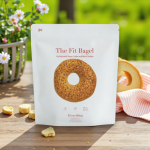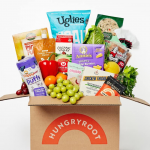Cappello’s Closes Round to Expand “Frozen-Fresh” Platform

The term “frozen-fresh” may seem incongruous, but that’s exactly what frozen food brand Cappello’s sees as the future of food. The brand, which sells grain-free pizzas, cookie dough and pastas, announced today that it had closed a round of funding to help it reach new consumers and expand its presence in retail channels and product formats.
The round was led by venture firm Alliance Consumer Growth (ACG) with additional participation by Finn Capital Partners. Terms of the deal were not disclosed, but co-founder and co-CEO Ben Frohlichstein said he and his fellow co-founder and co-CEO Stacey Marcellus remain the two largest shareholders and together own a majority of the brand.
Previously, Frolichstein said, the company had closed a seed round of funding from angel investors in 2015 and a series A investment round in 2019. A review of SEC filings, which the brand declined to discuss, indicates that Cappello’s raised roughly $2.5 million in July 2019 and, as of May 2020, had closed approximately $6.4 million of a larger $9.6 million round, which included roughly $2.8 million in convertible debt.
Frohlichstein told NOSH that he and Marcellus appreciated ACG’s understanding of the frozen food space; the firm was a previous investor in frozen food brand Evol, which was eventually sold to Boulder Brands, a holding company eventually purchased by Conagra and then Pinnacle Foods. Evol founder Phil Anson, who is also an operating partner at ACG, has been on the Cappello’s board of directors for several years.
Frolichstein said the funding will go towards helping the ten-year-old brand launch into new channels and product categories — and then support those efforts via promotional plans.
Cappello’s overall desire is to become a freezer set staple focused largely on savory products. Last year it gained global placement at Whole Foods Market, and it plans to launch a new product later this year.
“I do think we have permission to be a platform brand,” Frolichstein said. “[The new launches] will give a reveal of how we’re thinking, in a broader sense, of how we can use the platform around nutrient-dense, frozen-fresh as an ability to extend the brand into more [products] that consumers are already looking for or already purchasing.”
Currently sold in 4,800 stores, the company plans to focus on moving deeper into more conventional retailers over the coming year. These efforts will require more “surgical” marketing plans, including an emphasis on promotional plans, Frolichstein said, to get consumers to turn to the frozen set. It’s a format switch for some consumers, who are used to looking for items like pasta and cookie dough in refrigerated formats.
“Our long view is that the freezer is our best friend when it comes to being a preservative and we can really get creative with what we put out into the world,” Frolichstein said. “We’re really trying to change how people are thinking about the freezer.”

















